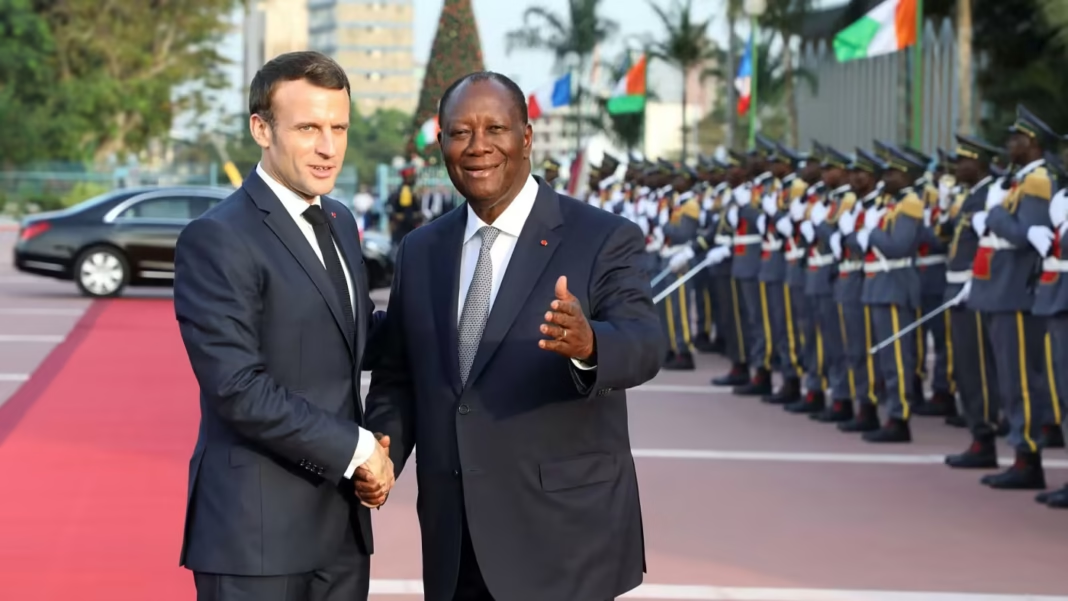Ivory Coast has taken a bold step in redesigning its future by announcing the withdrawal of French troops after decades of military presence. President Alassane Ouattara declared this decision in his end-of-year speech, and put an emphasis on the readiness of the Ivorian army to take full control of the country’s security. This decision reflects a growing wave of African nations distancing themselves from their former colonial power and reimagining their military alliances.
Historical Background
French troops have been stationed in Ivory Coast since the colonial era, a legacy of France’s extensive control over West Africa. Even after Ivory Coast gained independence in 1960, it maintained close ties with France under the “Françafrique” system, which ensured France’s continued influence over its former colonies. Over the years, the French military’s role evolved to include peacekeeping during the Ivorian civil wars between 2002 and 2007. During this period, French troops protected civilians and facilitated fragile peace processes, earning both praise and criticism for their actions.
For decades, France’s presence was symbolized by the 43rd BIMA marine infantry battalion stationed in Port Bouët, Abidjan. This base was not only a military stronghold but also a symbol of the enduring French influence in Ivory Coast’s internal affairs.
Modernization of the Ivorian Armed Forces
President Ouattara’s announcement came with a strong assertion of national progress. He emphasized the modernization and strengthening of Ivory Coast’s armed forces, noting that the country is now fully capable of managing its own security without relying on external support. The transfer of the French-controlled Port Bouët base to Ivorian forces in January 2025 represents a major milestone in this process.
This decision reflects years of investment in training and equipping the Ivorian military, allowing it to address internal and regional security challenges more effectively. By taking this step, Ivory Coast signals its confidence in the ability of its forces to safeguard national sovereignty and maintain stability.
Regional Trends in Expelling French Troops
Ivory Coast’s move is part of a broader pattern across West Africa. Several countries, including Mali, Burkina Faso, Niger, Senegal, and Chad, have recently terminated military agreements with France. This growing trend stems from widespread dissatisfaction with France’s perceived failure to combat insurgencies effectively and lingering resentment over its colonial legacy.
In Mali, Burkina Faso, and Niger, the departure of French troops has been accompanied by a pivot towards alternative alliances, particularly with Russia. These nations have employed Russian mercenaries to tackle jihadist insurgencies, though these partnerships have brought their own set of controversies.
This regional shift is more than a military realignment; it reflects a deeper transformation in how African nations perceive their relationships with former colonial powers. The call for sovereignty and self-reliance echoes throughout the continent, creating a domino effect that Ivory Coast has now joined.
Declining French Influence in Africa
The withdrawal of French troops from Ivory Coast is yet another blow to France’s waning influence on the continent. Once a dominant power in Africa, France has now been forced to scale back its military presence significantly. In the past few years, France has lost troop deployments in over 70% of African nations where it previously maintained bases.
Analysts view this as part of a structural transformation in Franco-African relations. France’s strategy now focuses on reducing its permanent troop presence and shifting to more flexible, partnership-driven military arrangements. However, this approach faces challenges as African nations increasingly assert their independence and seek new alliances to address their security needs.
Potential Long-Term Effects
The decision to withdraw French troops has significant implications for Ivory Coast and the wider region. In the short term, it tests whether the Ivorian military is ready and capable to handle security challenges on its own. The Gulf of Guinea, where Ivory Coast is located, faces increasing threats from extremist groups. It’s crucial to implement strong security measures because French soldiers have been assisting the Ivorian army in combating armed groups in the Sahel. These groups are expanding into countries around the Gulf of Guinea, including Ivory Coast and Ghana.

WorldAtlas. “Map showing the Gulf of Guinea.”
Economically, Ivory Coast’s decision to prioritize sovereignty could inspire other nations to reevaluate their partnerships with foreign powers. While France remains a major trading partner, this shift may encourage diversification of economic and security ties and encourage stronger intra-African collaborations.
On a geopolitical level, the withdrawal could accelerate the decline of French influence in Africa and reshape the continent’s alliances. The rise of Russia as a key military partner for some nations signals a shift in the balance of power, though it also raises concerns about the long-term consequences of such partnerships.
Conclusion
Ivory Coast’s decision to expel French troops is a landmark moment in its pursuit of sovereignty and self-reliance. It reflects broader regional trends of distancing from former colonial powers and redefining relationships on more equal terms. As the Ivorian military takes control of the Port Bouët base and steps up to lead the nation’s security efforts, it reflects the country’s determination to shape its own future.
This decision goes beyond military strategy; it’s a powerful assertion of sovereignty that could inspire other African nations. While challenges remain, Ivory Coast’s commitment to modernizing its military and embracing national pride represents a significant moment in reshaping Franco-African relations.
Featured image: AFP via Getty Images. “French President Emmanuel Macron shakes hands with his Ivorian counterpart, President Alassane Ouattara.








